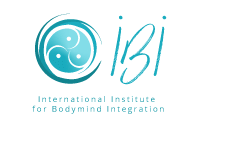“Panic attacks are a lot like being drunk in some ways, you loose self-control. You cry for seemingly no reason. You deal with the hangover long into the next day.”
― Sara Barnard, A Quiet Kind of Thunder
What is a Panic Disorder?
Panic Disorder refers to unexpected and repeated attacks of intense fear and discomfort known as “Panic Attacks”. Panic attacks come without warning, and seem to come out of nowhere. As a result, these attacks can have a disabling effect, driving people towards a “fear of fear” response. This means that someone may feel anxious even when they are not having a panic attack simply because they are afraid of having a panic attack. This allows them to avoid people, places or situations that they associate with such panic attacks. For example, someone who has had a panic attack while driving a car may develop a fear of driving. Avoiding this often interferes with school, relationships, and normal development.
Common symptoms of panic disorder
The following physical symptoms can be present in a panic disorder:
- Increased heart rate
- Dizziness or lightheadedness
- Difficulty breathing
- Vibrate or shake
- Excessive sweating
- Nausea / stomach upset
- Headaches
- Feeling of unreality or fear of losing control
Recognize any of these symptoms and need treatment for your panic disorder?
If you recognize any of these symptoms in yourself or in any of your loved ones, a professional evaluation may be appropriate. The Institute for Bodymind Integration offers treatment of anxiety disorders from a bio-psycho-social and a holistic / integrative approach that addresses your needs.
Appropriate intervention for anxiety disorders includes:
- Individual Therapy: Individual work focuses on developing specific anxiety management skills, while also addressing the struggles of everyday stressors and low self-esteem that often accompany a diagnosis of anxiety.
- Relaxation, Grounding and Body Awareness and Expression: Like individual therapy, relaxation, grounding and body awareness and expression works by teaching specific anxiety management skills. Inner processes that contribute to fear are made more aware and thus you are taught to better control these processes.
- Family Therapy: Family work can be important in treating anxiety because it focuses on developing open communication and expression of emotion, while teaching loved ones techniques they can use with you at home.
- Group Therapy: Groups provide safe and appropriate social training where you can receive feedback from peers and professionals on how to regulate your behavior, emotions and thoughts.
Did you like this article? Share it in:





